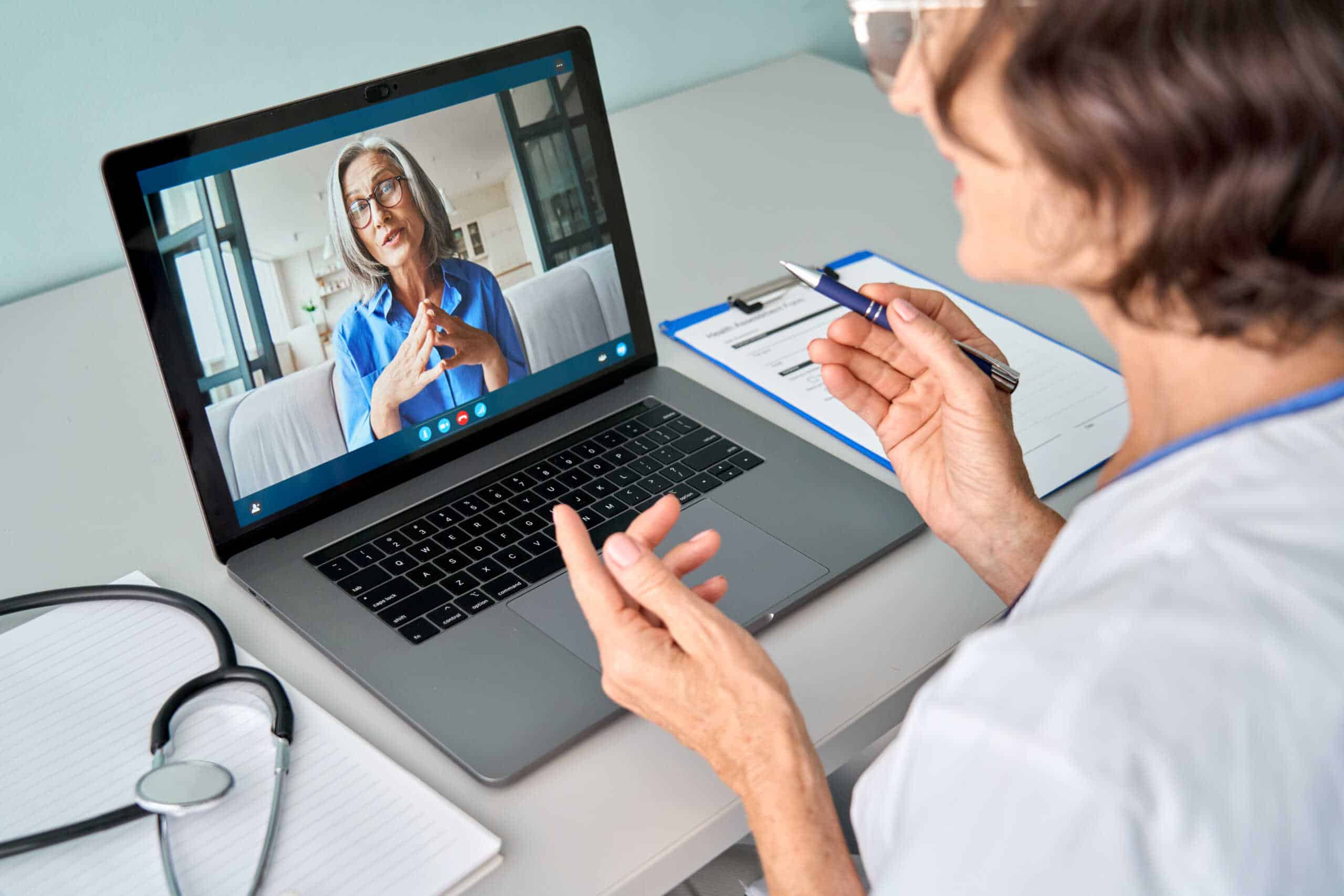Virtual and telehealth treatment approaches became increasingly popular during the COVID-19 pandemic, as they allowed individuals to receive medical and mental health treatment from the comfort of their own homes. Telehealth options also provide a convenient and accessible way for individuals in rural or remote areas to gain access to addiction treatment services. Additionally, they have the potential to further increase accessibility to those who may not have been able to receive it otherwise.
Guardian Intensive Outpatient Program provides individuals with a unique experience by integrating the latest advances in evidence-based clinical care for addiction with 12-step and holistic approaches. Our program continues to grow and change to ensure that we offer our clients the most effective tools for long-term recovery. We offer treatment options for those who do not require inpatient care or are in need of continuing care following the completion of a more intensive program.
What Are Virtual & Telehealth Options?
Virtual telehealth treatment refers to the use of technology to deliver healthcare services remotely. In the context of addiction treatment, virtual telehealth treatment involves the use of digital tools and platforms to provide individualized therapy, counseling, and other support services to individuals who are struggling with addiction. These treatment approaches can be beneficial for individuals unable to attend in-person therapy sessions, whether due to geographic location, scheduling conflicts, or other factors.
Types of Virtual & Telehealth Options Include:
- Video Conferencing—This involves using a video platform such as Zoom, Skype, or FaceTime to conduct virtual therapy sessions with a licensed therapist or counselor. Patients can connect with a therapist from anywhere with an internet connection, allowing for increased flexibility and accessibility.
- Other Online Therapy and Counseling Formats—Patients are connected with licensed therapists and counselors who provide virtual services through telephone, messaging, or live chat.
Mobile Apps—There are a variety of addiction recovery apps that offer virtual telehealth treatment services, such as mindfulness exercises, peer support groups, and more. (1)
Advantages of Using Virtual & Telehealth Options
There are multiple benefits of using virtual and telehealth treatment options, including increased accessibility, privacy, and engagement.
Increased Accessibility
In addition to being especially helpful for individuals who live in rural areas or have minimal access to in-person treatment options, virtual and telehealth formats can connect individuals with specialized addiction treatment services and professionals that may not be available in their local area.
Increased Privacy
Telehealth treatment can also provide greater privacy for individuals seeking addiction treatment, which can be essential for those who may feel embarrassed or stigmatized by their condition. This increased privacy can also motivate more individuals to seek help and support for their addiction.
Increased Engagement for Some
These formats can provide greater engagement and treatment retention for some individuals who may feel more comfortable accessing treatment remotely. It can also encourage some people who are apprehensive about in-person interactions to consider this type of treatment.
Reduced Cost
Virtual treatment can reduce costs for healthcare providers by eliminating the need for physical space and equipment, as well as reducing transportation costs for patients. Moreover, these options may be ideal for those without the financial means to attend in-person sessions regularly. This could potentially make addiction treatment more accessible and affordable for those who are struggling with addiction.
We Are Here For You
Let Us Help You Heal
Our Drug & Alcohol addiction treatment experience is second to none.
Learn how we can help by speaking with one of our Treatment Advisors today.
Disadvantages of Using Virtual & Telehealth Options
There are some drawbacks to using telehealth treatment, and these options may not be right for everyone. These include little or no in-person interaction, lack of professional supervision, and technological issues.
Limited In-Person Interaction
The limited in-person interaction between the patient and healthcare provider, may not be beneficial for some and may impact the quality of care. Additionally, individuals struggling with co-occurring disorders may require more intensive and personalized treatment that cannot be fully provided through telehealth platforms, making it necessary to seek personal interaction.
Lack of Professional Oversight
Another potential drawback of virtual and telehealth options is the lack of or limited professional oversight, which could lead to misdiagnosis or inadequate treatment, especially if the healthcare provider is not adequately trained or experienced in providing remote care.
Technical Difficulties
Patients need to have access to the applicable technology and a reliable internet connection to avoid technical difficulties during their virtual sessions. It may be helpful to perform a test run before the actual appointment to ensure everything is working properly.
Legal & Regulatory Considerations of Telehealth in Addiction Treatment
Healthcare providers must consider the legal and regulatory elements of telehealth in addiction treatment, such as being compliant with HIPAA regulations and obtaining proper licensing for providing virtual services across state lines, if applicable. (2)
Licensing
There are licensing requirements that apply to addiction treatment providers, and it’s important for them to understand the regulations in their state before offering telehealth services. Providers should ensure that they are complying with all federal and state laws regarding patient privacy and confidentiality when using telehealth technology.
Confidentiality
Confidentiality requires using secure platforms for video conferencing and electronic health records, obtaining patient consent for virtual services, and establishing the necessary security measures to protect patient information from unauthorized access. Failure to adhere to these regulations can result in legal and ethical consequences for addiction treatment providers, and patients should be aware of these standards and ensure all requirements are met.
Security
Addiction treatment providers need to implement a number of security protocols to ensure the patient’s information is secure and cannot be disclosed. These include data encryption, regular system updates, and employee training, among others. (3) It is vital to prioritize data protection to maintain patient trust and prevent potential breaches.
Is Virtual & Telehealth Addiction Treatment as Effective as In-Person Treatment?
Virtual forms of addiction treatment have been found to be just as effective as in-person treatment, For example, in a May 2022 article in Psychiatric Services, the authors analyzed published studies comparing addiction treatment using telehealth platforms with in-person treatment. Seven studies found telehealth treatment was effective but not more so than in-person treatment in relation to retention, therapeutic relationships, and substance use. (4)
Virtual Recovery Support Groups as Alternatives to In-Person 12-Step Meetings
Virtual peer support groups have become significantly more popular since the COVID-19 pandemic, as they provide a safe and accessible option for those in recovery. While some may prefer traditional in-person 12-step meetings or other support groups, virtual formats offer a convenient and effective alternative for those who may not have access to or feel comfortable attending in-person meetings.
Begin Healing Now!
Have A Call With One Of Our Treatment Advisors
Don’t Suffer Any Longer
Contact Guardian IOP Today for More Information
Virtual and telehealth options can provide numerous benefits to patients seeking addiction treatment, including increased accessibility, improved privacy, and reduced cost. However, there are also some disadvantages to consider, such as limited in-person interaction and technical difficulties. Despite some challenges, the benefits of virtual and telehealth options make them a valuable tool for improving access to addiction treatment for many people under many circumstances.
Guardian Intensive Outpatient Program offers an evidence-based treatment option that allows for patient flexibility while also providing ongoing, effective, easily accessible care. If you or a loved one are in need of quality treatment for addiction, we urge you to contact us today for a free, no-obligation assessment and health insurance benefits check and to learn more about our holistic approach to recovery.
Get Started Now
Give us a call 24/7
(888) 693-1894


Reviewed for accuracy by:
Anna Marie Barrett LCSW, CYT
Anna earned her Masters of Social Work at Barry University in Miami, FL in 2017 and completed her internship in co-occurring disorders. Anna has a Bachelors of Art in Religious Studies from Naropa University and is a certified yoga and meditation instructor. Anna has received specialized training in somatic counseling with an emphasis on body-centered psychotherapy.




















